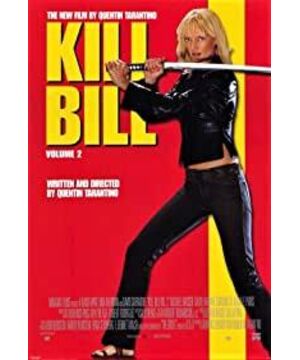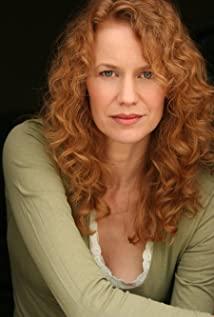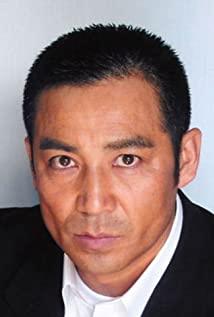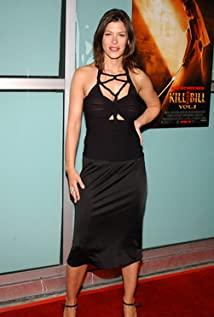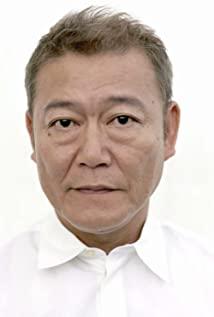From the Cannes fire in May last year to this year's Oscars, "Parasite" stole a lot of the limelight from "Once Upon a Time in Hollywood", which "debuted" during the same period.
"Once Upon a Time in Hollywood" is one of my rare films that "was boring the first time, but was pleasantly surprised the second time." Still, I don't quite agree with what many people say this is director Quentin Tarantino's most personal work. It was at best his "tenderest love letter" to Hollywood.
In my opinion, his most personal expression is probably the Quentin Kill Bill series that has been called the most commercial in his list, and the worst in many people's minds.
(minor spoilers below)
The "Kill Bill" series that has been released is divided into two parts. The plot of the story is very simple: a woman who wants to retire from the rivers and lakes is brutally destroyed by the gang, but she does not die, and wakes up to take revenge. If you haven't seen this movie, you might think it's a Hong Kong movie at first glance. After watching this film, I can be sure that this is a Hong Kong film. It's just that it borrowed a Western shell.
Despite the non-linear narrative, Quentin didn't put as much thought into piecing together the plot as "Pulp Fiction" this time around.
The two "Kill Bill" heroines took revenge on five people in total. The first scene after the heroine Uma was shot in the head by Bill was that the heroine found and killed one of the members of the deadly poisonous tongue assassination organization, the black female killer codenamed Copperhead Snake (hereinafter referred to as Copperhead Snake). ).
Of course, from the order of the heroine's "List of Five Must Kills", we know that the Japanese gang boss played by Lucy Liu was the first to die.
The first scene was arranged for Copperhead. Many people said that it was a commercial and film rhythm consideration. After all, Liu Yuling's massacre was the top priority in terms of its splendor and intent. It's understandable, but I don't think the Copperhead scene is as casual as many people say.
The key to this scene is no longer Copperhead's death, but her daughter.
The two broke off their fight when her daughter suddenly came home from school. However, in the end, the copper-headed snake was stabbed in the chest by the heroine, a "Little Li Fei Dao", because of an untrustworthy sneak attack. Her daughter saw herself stabbed in the chest. At this time, the heroine said something to the little girl of the copper-headed snake: When you grow up, if you still feel raw about it. I will be waiting. ).
The success of one revenge creates the beginning of the next. This may be the real reason Quentin put "Vengeance on the Copperhead" in the first scene.
Five objects of revenge, in the first part, the heroine actually killed two. The black female murderer, the copper-headed snake, was over at the beginning of the film, and then briefly explained the four years from being slaughtered to waking up, and how to use her mind to complete the process from paralysis of legs to racing in 13 hours. .
A lot of the remaining space was given to another object of revenge - Yulian Ishii, the Japanese gang leader played by Lucy Liu.
Quentin even spent an entire animation describing how Lucy Liu, a supporting character, evolved from a baby in the hands of parents to a world-class female murderer. This is also what many people were puzzled about when the first film first came out. Who is the protagonist?
Interestingly, among the six main characters, including the heroine, only Liu Yuling's character in the upper and lower parts can show her childhood experience. She went from being a victim of violence to an avenger, then to a perpetrator of the violent system, and finally to an object of revenge.
She is really just a victim of the violent system or culture.
This may be why Quentin spends so much time rendering the character.
In fact, the first "Kill Bill" Quentin has secretly revealed his anti-violence thoughts.
But revenge and violence are really two themes. If you want to talk about revenge, you have to go back to the subtitle that appeared in the opening credits: Revenge is a dish best served cold. Literally, it can be translated as "revenge must be calm" or "a gentleman takes revenge, ten years is not too late". How exciting it sounds. No matter how long it takes, revenge must be avenged. But is this really what Quentin wants to express?
I searched for the true meaning of this sentence: Revenge is best done through the passage of time. It is possible that as time passes, many hatreds may lose their meaning and feel that there is no need to take revenge. It is also possible that, even if time passes, even if you still feel that revenge must be done, it is not too late to take revenge after careful consideration.
After thinking about it, this may be what Quentin wants to express.
In fact, the two volumes of Kill Bill are really two movies.
The first is about "hate" and the second is about "love".
In the second part we finally know the name of the heroine Beatrice Kido (sorry, this name is so boring, no wonder Quentin kept beeping her name in the first part, later on I'll just use the Kiddo that Bill calls her).
Being pregnant with Bill's baby, Kiddo wanted to give the new life a "clean" environment. She didn't want to continue to be a killer and left Bill.
The first scene of the second installment shows the beginning of the entire revenge story: the wedding (rehearsal) massacre. Kiddo was wearing a wedding dress with a big belly and was rehearsing her wedding. The daughter in her belly kept kicking her. She had to go to the door to breathe and saw Bill. This detail is very interesting, it seems that the daughter feels Bill's presence.
Does Bill hate her when he sees the woman he loves with her belly sticking out in her wedding dress to marry another man? Of course. But has he no love for her? There is as much hate as there is love.
About Budd and Bill
Budd's forefoot said to his brother Bill: She deserves revenge, and so do we.
Kiddo came to take revenge and knocked her unconscious with one shot.
Attacking Kiddo with a non-lethal rock salt bomb shows that Budd himself doesn't want to kill anymore. Burying Kiddo's coffin was just to get Elle's money to save her life.
He even asked Elle: Do you have any regrets about the massacre? After asking, he began to count the one million paid for torturing Kiddo.
Wasn't what he said to Bill and the question he asked Elle the truth? I think it's all from the heart. But compared to his own life, what is the morality of those rivers and lakes?
Has he really done a retreat in his heart? If so, he wouldn't be hiding the Hattori Hanzo katana that Bill gave him.
Budd didn't kill Kiddo, who was named Black Mamba, but was bitten to death by the True Black Mamba brought by Elle. As long as you are in the rivers and lakes, it will not be so clean.
White Brow, Kiddo and Elle
One-eyed Elle is jealous of Kiddo, even though she was personally involved in Bill arranging the massacre. But she knew that in Bill's heart, she would never be as good as the heroine. She was jealous of Bill's love for Kiddo. And it was her jealousy that led to her own demise (Budd slowly tortured Kiddo according to her orders, which also led to Kiddo not dying and coming back for revenge).
Bai Mei is Kiddo's master and Elle's master. The relationship between the three should be learned by Quentin from Hong Kong martial arts films. Facing Bai Mei's cruel teaching methods, the attitudes of the two are completely different. Kiddo is "forbearance" and Elle is "rebellious", which is also her "rebellion". Bai Mei gouged out one of her eyes. When I saw the scene where Elle poisoned the white eyebrows with high martial arts skills, I thought to myself, Quentin didn't bring some smuggled goods, did he?
But when Kiddo chose not to kill Elle, but to gouge out her other eye, I understood that Quentin was just joking, and everything was two words: cause and effect.
Elle lost two eyes from the master and apprentice because of "rebellion" and "jealousy"; Kiddo learned the life-saving "iron sand palm" from Bai Mei because of "forbearance".
Both Elle and Kiddo hated, but at least Kiddo loved and she survived.
Kiddo and Bill.
Kiddo finds Bill with hatred, but Bill wants to influence her with love (the two's four-year-old daughter).
Daughter played what Bill called her "bang bang" at Kiddo with a fake gun.
Does Bill want to kill the avenging bride in Kiddo's body by his daughter's hand?
no. He knew that Kiddo would always be that Kiddo.
True warriors will respect each other and accept each other's challenges openly. That's why Kiddo is different from Budd, Elle and the black female killer in the first movie and is called a real warrior in Bill's eyes.
Kiddo curled up in the bathroom crying after he finished his revenge. She may not even know if she is really free.
But Quentin at least told us that love cannot eliminate hate, but hate without love is meaningless.
Why is "Kill Bill" possibly Quentin's most personal work? Because other works more or less implicitly discuss various social issues, "Reservoir Dogs" and "Pulp Fiction" about American culture, "Inglourious Basterds", "Django Unchained" and "The Hateful Eight" about political issues , about feminism, "King Kong is not bad" and "The Punishment Room". Including the recent "Once Upon a Time in Hollywood" is just a personal emotion for that era in Hollywood.
Compared to other works, the topics discussed in Kill Bill are more universal.
Only "Kill Bill" let me see the revenge bride Kiddo is Quentin himself,
View more about Kill Bill: Vol. 2 reviews


